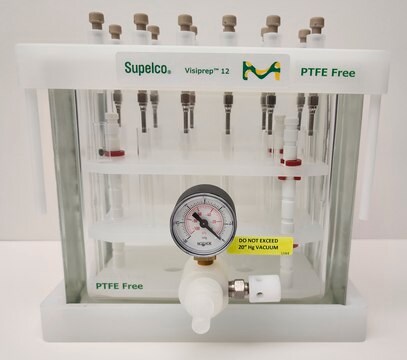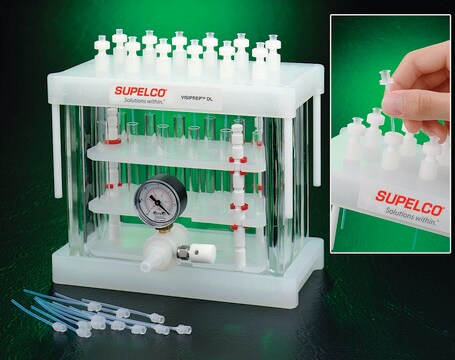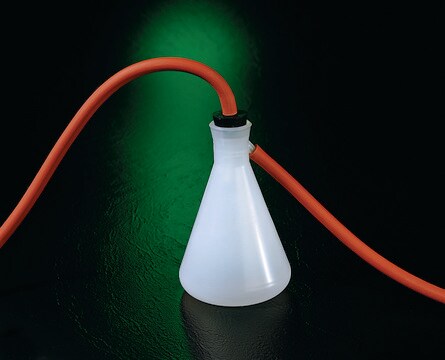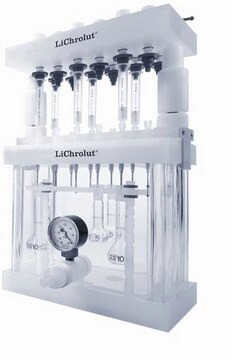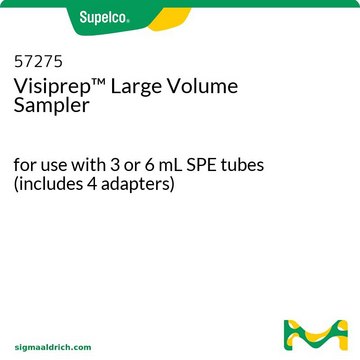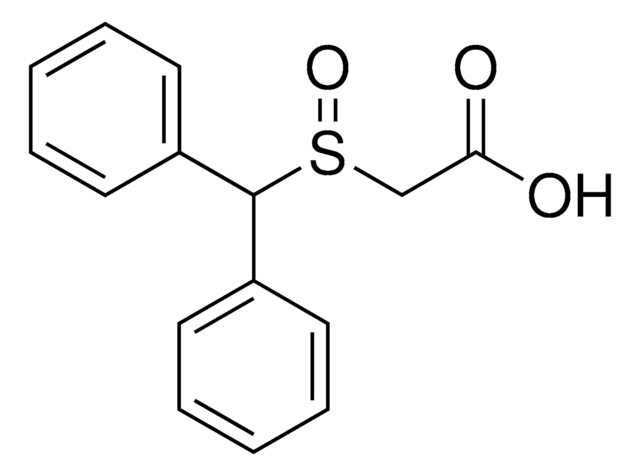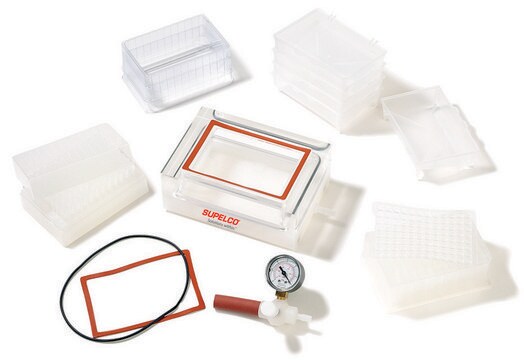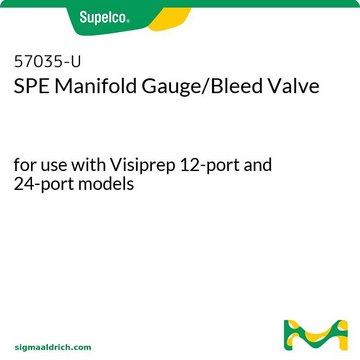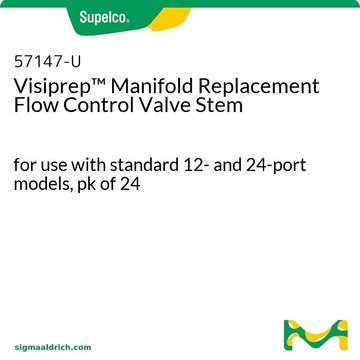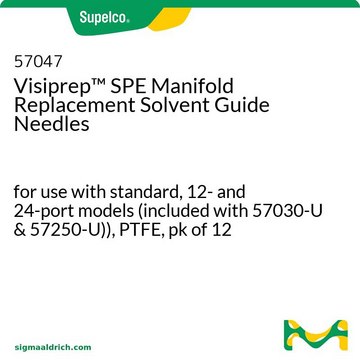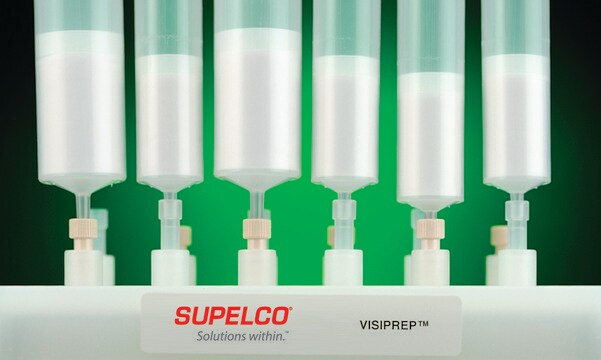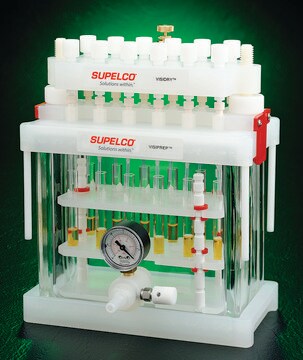57250-U
Visiprep™ SPE Vacuum Manifold, PTFE Free

standard, 24-port model
Synonym(s):
24-port SPE Vacuum Manifold for cartidges
About This Item
Recommended Products
material
UHMW PE frit
polypropylene tube
Quality Level
Agency
suitable for DIN 38407-42
suitable for EPA 1633
suitable for EPA 533
suitable for EPA 537.1
suitable for EPA ACB B21-02
suitable for EPA ACB B23-05b
suitable for EPA OTM-45
suitable for GB 31604.35-2016
suitable for ISO 21675 2019
suitable for ISO 25101
suitable for ISO/CEN 15968-2010
reg. compliance
suitable for FDA C-010.02
product line
Visiprep™
technique(s)
solid phase extraction (SPE): suitable
suitability
suitable for (for PFAS Testing)
application(s)
environmental
food and beverages
Looking for similar products? Visit Product Comparison Guide
General description
Application
- pH-sensitive pullulan-doxorubicin nanoparticles loaded with 1,1,2-trichlorotrifluoroethane as a novel synergist for high intensity focused ultrasound mediated tumor ablation: This innovative approach employs 1,1,2-Trichlorotrifluoroethane in nanoparticle formulations to enhance the efficacy of tumor treatments through high intensity focused ultrasound, showcasing its potential in pharmaceutical applications (Li et al., 2019).
- Chemical analysis and risk assessment of diethyl phthalate in alcoholic beverages with special regard to unrecorded alcohol: Although primarily focused on diethyl phthalate, this study highlights the broader scope of solvent safety in pharmaceuticals, suggesting indirect implications for handling and safety assessments of solvents like 1,1,2-Trichlorotrifluoroethane (Leitz et al., 2009).
- Quantitative determination of n-propane, iso-butane, and n-butane by headspace GC-MS in intoxications by inhalation of lighter fluid: This research demonstrates the use of advanced analytical techniques for volatile substances, which could be analogous to methodologies applied in studying environmental and safety aspects of 1,1,2-Trichlorotrifluoroethane in industrial settings (Bouche et al., 2002).
Features and Benefits
- Patented screw-type valves within each SPE port for precise flowcontrol
- Glass basin will not dissolve, fog, or discolor when exposed tosolvents
- Legs on cover allow user to easily rest cover on work surface whenremoved from the manifold
- Screw-type solvent-resistant vacuum bleed gauge and valve offerbetter sealing and vacuum control. Valve takes 1/4″ vacuumtubing.
- PP collection vessel rack accommodates autosampler vials; smallscintillation vials (22.75 mm O.D. recommended); 10 and 16 mm test tubes; and 1, 2, 5, and 10 mL volumetric flasks. An optional plate for 20 mL scintillationvials is available for 12-port models.
Legal Information
related product
Choose from one of the most recent versions:
Certificates of Analysis (COA)
Sorry, we don't have COAs for this product available online at this time.
If you need assistance, please contact Customer Support.
Already Own This Product?
Find documentation for the products that you have recently purchased in the Document Library.
Customers Also Viewed
Articles
This page provides tables that list the products used in promulgated methods for Per- and polyfluoroalkyl substances (PFAS) analysis, organized by method and step for easy reference. As new methods are released, this page will be updated.
Protocols
To optimize hydrolysis using β-glucuronidase, factors such as incubation time, temperature, hydrolysis pH, enzyme source, and enzyme concentration must be evaluated for each glucuronide metabolite to be analyzed.
Our team of scientists has experience in all areas of research including Life Science, Material Science, Chemical Synthesis, Chromatography, Analytical and many others.
Contact Technical Service